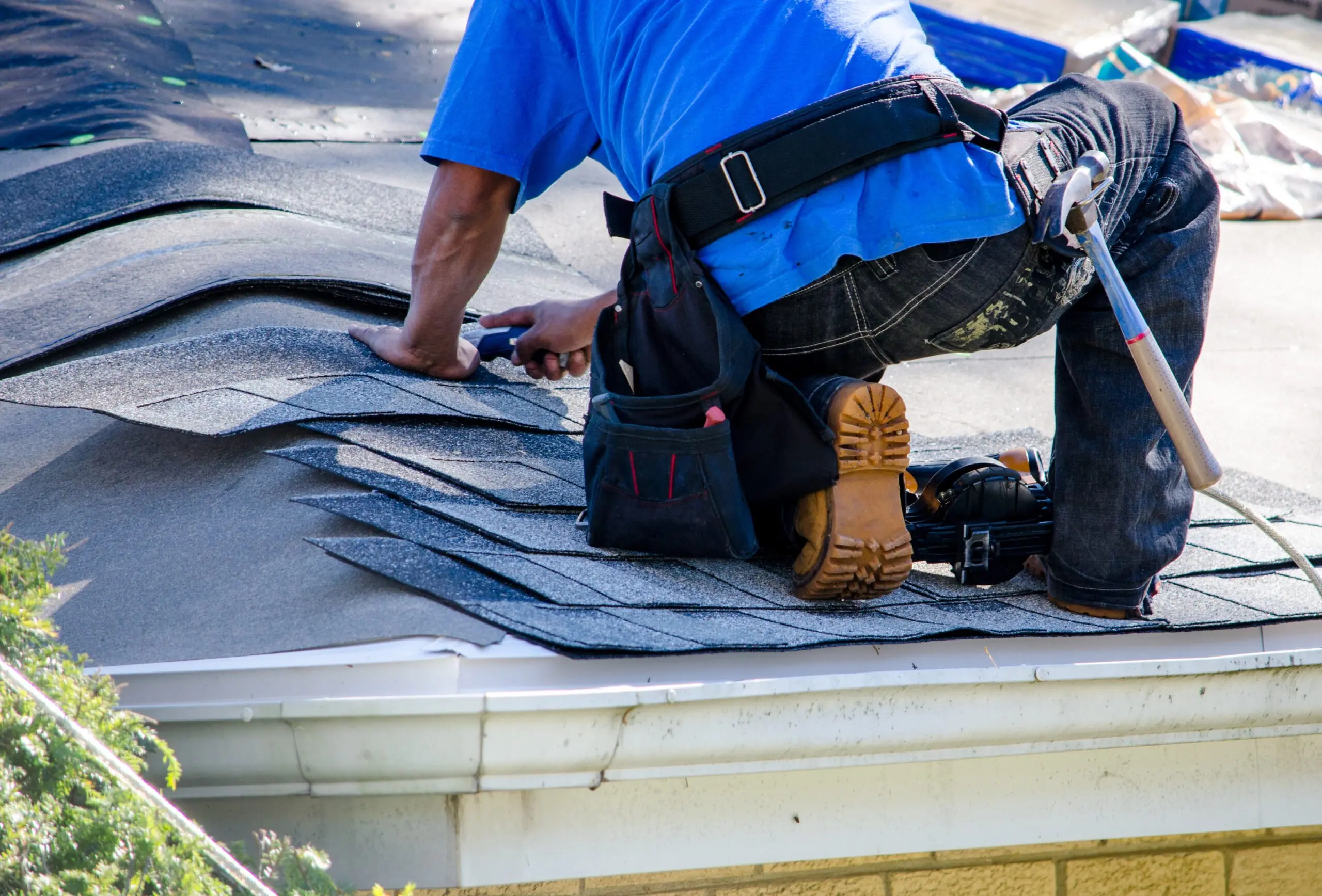No matter how awesome you are at DIY projects, there are some home renovations and repairs that require the expertise of a good contractor.
From foundations to trusses, from new additions to new wiring, there are certain things that should only be handled by a licensed professional.
But finding a good contractor can be easier said than done. Every homeowner has heard stories of the never-ending kitchen remodel or the contractor who took payment and skipped town. No one wants that to happen to them!
Thankfully, finding a good contractor is definitely possible. It just requires some intentional research and due diligence on the part of the homeowner.
That’s why we’ve created this complete guide to finding a contractor. Whether you’re looking for a great general contractor for your own home or you’re planning to hire experts for certain aspects of your house flipping business, these eight steps will give you the tools that you need to find the best professional for the job.
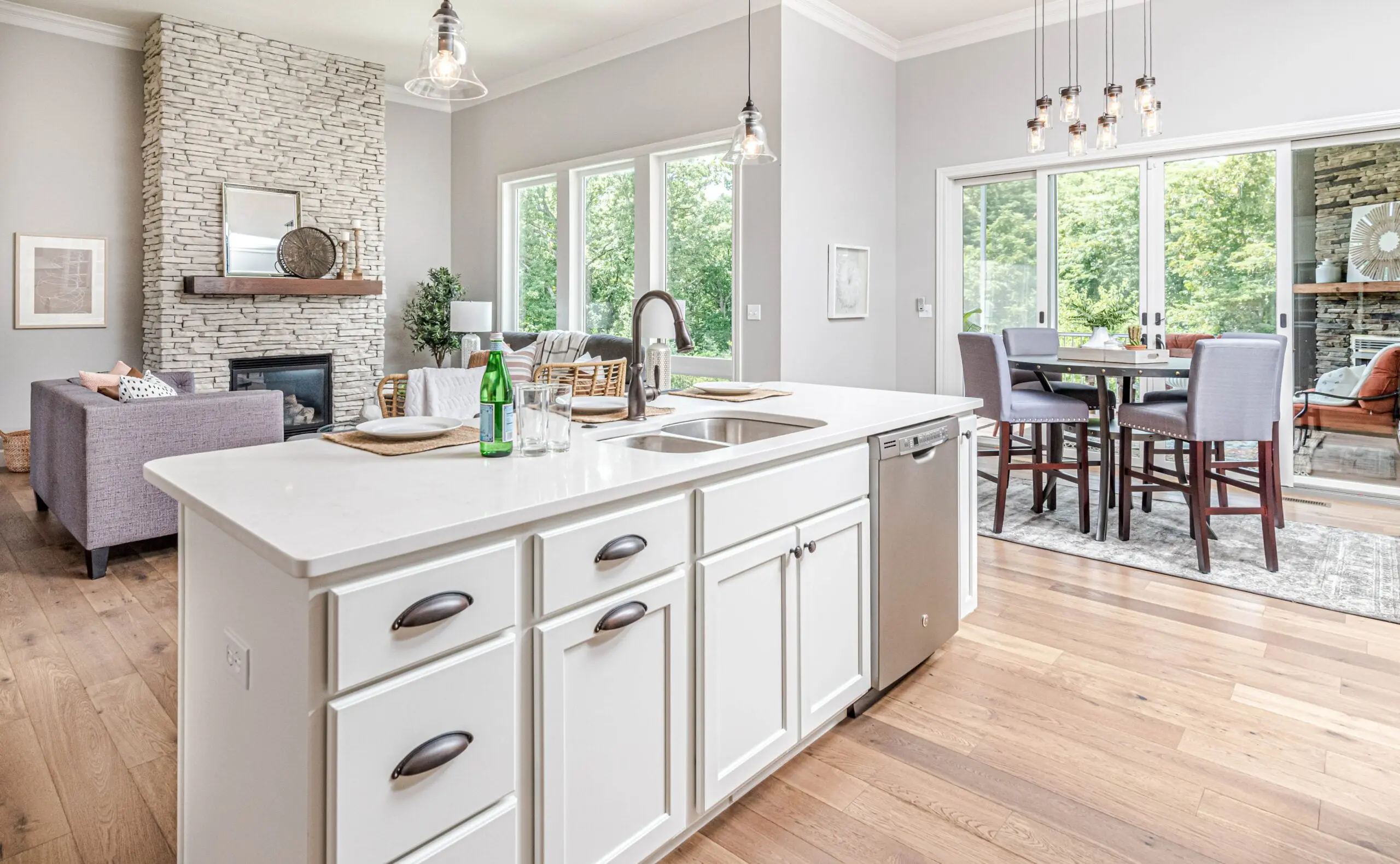
1. Gather Contractor Names From Reputable Sources
Compiling a list of contractors in your needed specialty is as easy as typing in the search bar of your phone. But just because a list pops up fast doesn’t mean that the names on it are any good.
Take care to curate a list of contractor names from trustworthy sources in order to save yourself some time (and possibly headaches) later in the vetting process.
Personal Recommendations
Getting the inside scoop from a former client can be one of the best ways to start researching contractors. If you know someone who had work done on their property that was similar to your job, reach out to ask about their experience.
Then you can add the contractor’s name to your list –– or steer clear if need be!
You may also want to consider reaching out for recommendations within local online groups. Some ideas to kick off your search might come from neighborhood Facebook groups or through sites like Nextdoor.
Just be sure that you don’t automatically trust the advice of strangers. Noting personal experiences is great, but it’s only one piece of a larger picture.

Internet Searches
Homeowners who are new to the area probably won’t have as much access to personal recommendations. Likewise, out-of-town investors may not have a local network to rely on. Sometimes it’s gotta be internet searches to the rescue!
Searching for contractors online is best done through sources that verify user reviews rather than general searches through your internet browser. Consumer Reports reviewed these contractor search sites for accuracy and helpfulness.
- Angi’s List: Noted for over 10 million verified reviews. Audits are done yearly to help prevent contractors from reviewing themselves positively and competitors negatively.
- Checkbook: Uses secret shoppers to compare prices and remains unbiased through a no-ads policy. However, membership comes with a fee and services are limited to specific metro areas.
- HomeAdvisor: Matches you with available contractors in your area for free and provides round-number estimates to give you a baseline idea of what the project might cost.
- Houzz: Photo-based searches let you click on designs that you like and contact the contractor directly.
- Porch: Compiles online data about contractors, including Better Business Bureau (BBB) ratings.
We asked investors for their best tips on finding great contractors for their projects:
“Get a minimum of 3-4 references and CALL THEM!”
“Check licensing board and get references (CHECK THEM).”
“Pay as work is completed and stay close to their work as it is being done.”
– Michael Roberts
“Buy a burner phone, post a craigslist ad, make a spreadsheet, do some interviews.”
– Steven Johnson
“Work with smaller contractors that do the work themselves – fewer employees means fewer mouths to feed so lower prices AND fewer communication issues from misinterpreted instructions.”
– Dave Nowak
“Meet as many as possible, even when you get one keep an open mind to other contractors. I keep a bandit sign in the yards of my rehabs seeking contractors. I believe this helps keep the ones I have on their toes.”
“Google is your friend. When people have something negative to say about a contractor they typically go online and express their opinion. Conversely, when they have a positive experience they usually will go online and review that person. So, go online and search for contractors in your area, it’s the fastest and easiest way to find great local contractors.”
“My professional advice to anyone looking for a good General Contractor is to not hire a contractor based solely upon your personal estimated budget. If you use this type of financial strategy you will create a very difficult working environment for you and your contractor. You must know how to manage the overall project and how to manage your subs. You need a very thorough construction knowledge base in order to know what it takes to manage a project with a good outcome.”
“You attract the kind of person that you are. Don’t be greedy. Don’t pay retail. If you want to “set it and forget it”, be prepared to pay more or get screwed.”
– Justin Weaver
“Get referrals from friends and family that have actually hired the contractor. Or from people in the industry that have personal experience with the contractor. I have also had pretty good luck with HomeAdvisor since there is a vetting process.”
– Jen Hejaily
2. Check That Contractors Have the Right Qualifications
Once you’ve created a broad list of possible contractors, you can start narrowing down your options by ensuring that each contractor is qualified to do your particular project.
Usually, this can be done by visiting the contractor’s company website. There, you should be able to find the following information:
- Scope of work. Within broad industries, not every pro will tackle every job. For instance, some plumbers specialize in installing pipes for new projects while others focus on repairs and leak detection.
- Licenses and insurance. You’ll want to work with a company that has the proper state licenses and is independently insured for liabilities and accidents. The company website should showcase these things, and may even direct you to the numbers for verification.
- Photos. Though having a gallery of previous jobs isn’t a requirement, sometimes it can help you determine if the contractor is familiar with projects like yours. If the photo gallery only shows new builds and you’re looking for remodeling work, you may want to move on to other options.
- Reviews. The company website will likely include some glowing reviews –– which is great, especially if they include info that’s specific to your project. But you may also want to do a general search at this point, like “[contractor name] reviews” to see if there’s an abundance of negative reviews anywhere. Internet searches aren’t everything, but they are something. If there’s a lot of negative buzz online, you should probably cross the contractor off your list.
3. Pre-Interview the Contractors
At this point, you’re probably looking at five to eight possible contractors who come from reputable local sources and work on your type of project. The next step is making that first contact via phone call.
During this stage, your goal is to get basic information to make sure you’re on the same page work-wise. You’ll want to tell the contractor the generalities of your project at first and get to the bottom of any concerns that could prohibit you from working together.
This isn’t the time to ask about specifics of the project –– that’s better done when the contractor actually comes out to examine your property in person.

Some questions to ask during the pre-interview could include:
- How long have you been in business?
- Do you have prior experience on projects like mine?
- What’s your current lead time for starting new projects?
- Can you give me a general timeline for completion?
- Will this project require permits, and if so, will you be pulling them?
- Do you employ your laborers or use subcontractors?
- Are your employees and subcontractors all licensed and insured?
- Have all employees and subcontractors passed a background check?
If the contractor’s answers are satisfactory, schedule a time for them to come to the property and give you an estimate. During that meeting, you’ll want to clarify additional details too.
We asked investors how they vet contractors before hiring them for a project:
“Call the State to double-check their license, bond/s, etc. Also, take a look into disciplinary actions.”
“Start with reviewing their licensing board website, call all references, if possible visit one of their current job sites.”
“Examples of past work. If they have recent work to refer you to that’s a safe as it gets, no sure things.”
– Steven Johnson
“Definitely check their status with the state, do a thorough search online and talk to their past jobs and look at their work.”
– Gary Pulver
“Look at past work. Check for complaints with the city and better business bureaus. Try to get referrals from third parties.”
– Dave Nowak
“The initial meeting says a lot. Did they show up on time? Did they bring all the necessary materials with them the first time? do you know anyone that has worked with them in the past that can vet them personally? If a contractor can’t show up on time how can you expect them to service your property in an effective manner- pay attention to the first impression.”
“Talk to your contractor candidates. Find one that you like and that communicates well with you. Look at references, reviews, and websites. Ask them how they will manage your project? What does the overall management of your project look like? Do they personally perform onsite duties and oversee their projects daily?”
“Meet with them in person to review the project and use my intuition/gut feeling. If I see red flags, I will not hire them. I try to get a sense of their communication skills, punctuality, responsiveness, knowledge, and follow-through. If they say they can start next week but are actually booked out a couple of months, they have lost my trust. I also check references and make sure they know people that I know, which creates some accountability.”
– Jen Hejaily
4. Ask for Multiple Estimates and Talk Details
Hopefully, you’ll be able to schedule on-property meetings with three to five different contractors. It’s always best to have a few different possibilities, even if you’ve already got a top pick in mind. Comparison shopping really works!
First, walk through the location and point out any important details and concerns. For instance, if your project involves taking down a wall, talk through how to reroute plumbing and electrical lines, along with any anticipated structural issues.
If your project involves digging for a new spa, point out any buried electric or irrigation lines that you know of.
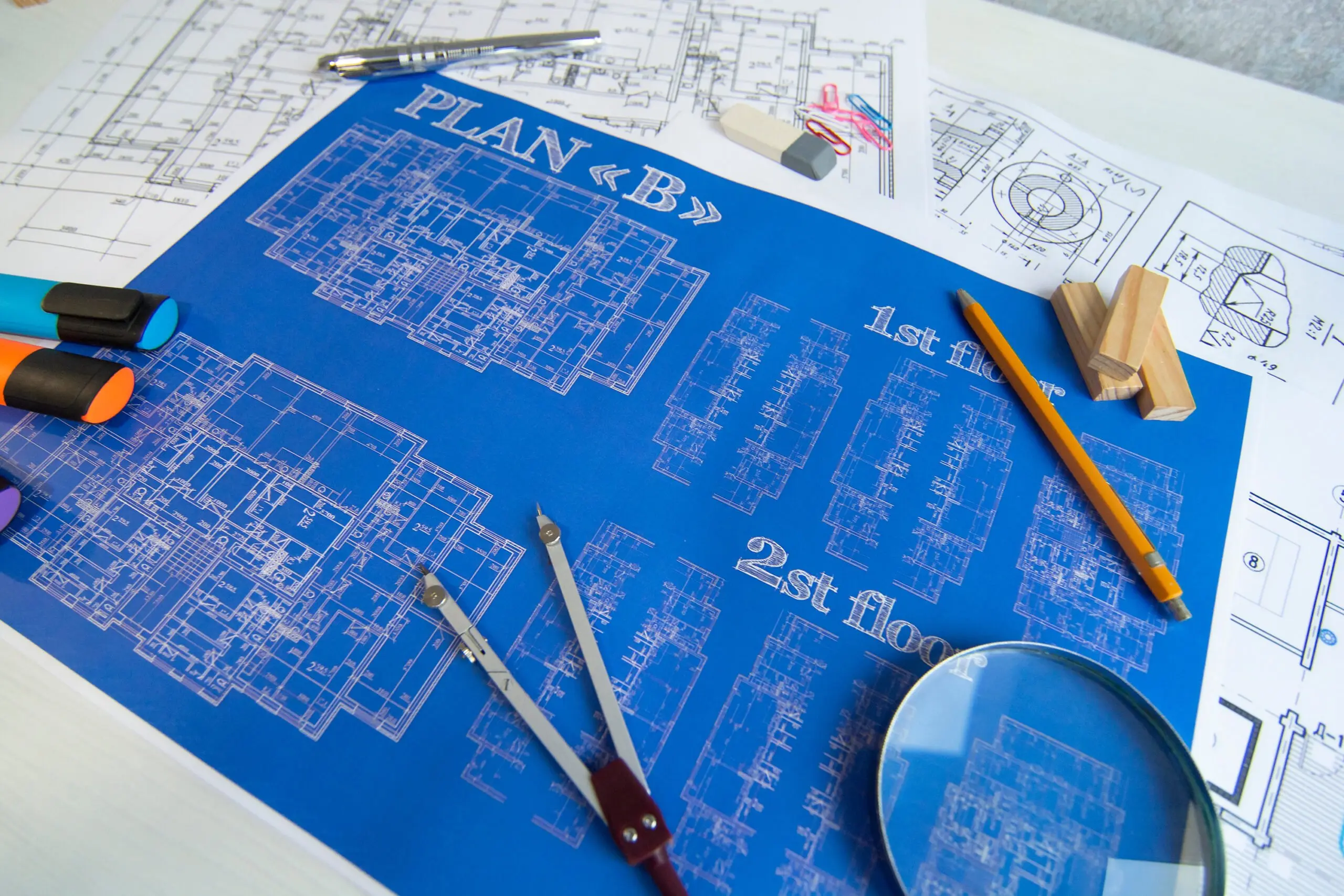
Next, describe the project in more detail. Help the contractor share your vision for what the end product will look like. If you have inspiration photos, this may be the time to share them with the pro.
They may also have catalogs or other suggestions to share with you as well. The more detail that you can provide, the more accurate your quote will be.
Once you’re sure that you’re on the same page about the project, you’ll also want to ask more questions about the business side of things.
- Will I have a dedicated team working on my project?
- When does your team’s typical workday start and end?
- What type of prep work will I need to do prior to you starting the project?
- Can you describe the steps you’ll take to protect my property from damage?
- Will I be able to contact you directly throughout the project? How?
- Do I need to be on the property for any part of the process?
- How will you clean up at the end of the day?
- Where will tools or supplies be stored?
- What type of official inspections are needed for this project?
- Will I personally be required to inspect and sign off on the work at certain stages?
- Do you offer a warranty on your work?
- What happens in the event of a dispute over the work done?
- Can I have a copy of your up-to-date license and insurance (including proof of worker’s comp, property damage, and personal liability coverage) prior to beginning the job?
- What is your normal payment schedule?
- Do you have a few references I can contact, preferably customers who’ve hired you for jobs like mine?
If you’re comfortable with the contractor’s answers to these questions, you may want to follow up with some day-to-day expectations, in case this is the contractor you end up hiring.
Communicate about pets, bathroom usage, and access to any secured areas (such as keys for locked gates or doors). You may also want to fill the contractor in on any parking issues or HOA stipulations.
Also, if you expect certain health or sanitation considerations (like face masks or shoe coverings), now’s the time to say so.
We asked investors if they manage a team of tradespeople during their flips or if they entrust the project to a general contractor with sub-contractors. Here’s what they had to say:
“We leave project management to a GC/subs since we focus on moving the deal forward to the next project.”
– Lorraine E Hadden
“I manage 100%. Projects cost less if you are in charge of your own money and you’re knowledgeable.”
– Michael Roberts
“I manage tradespeople. 3 crews, each one does 8-10 houses a year. They do sheetrock/wood repair, painting, flooring exclude carpet, fixture install, light tile work. Roof, electrical, plumbing, etc hired out. I GC.”
– Steven Johnson
“We do almost all of our own work and hire subs directly on things we can’t or don’t want to do.
IMPORTANT – no matter what method you use – you MUST supervise everyone daily.
This way you know they are doing what you want how you want it AND know immediately if they don’t show up so you can be the squeaky wheel that gets them back on YOUR job because time is money – especially if you’re borrowing hard money.”– Dave Nowak
“No matter how big or how small the job, you have to be on-site on random occasions to make sure the contractors are doing their jobs. You have to let them know that you are heavily invested in the project and they will not slack and will not cut corners on you. Whether you hire a general contractor or not you always want to be on top of your job.”
– Garrett Greco
“Ask yourself this question? Do I have enough time and experience to manage my Fix and Flips on a daily basis? Am I making more money managing my Fix and Flips or would I make more money finding my next house to buy? You hire a good professional contractor to manage your projects for you because you don’t have the experience to manage your own projects.”
– Steve L. Cannon
“Usually, hire a GC by the hour so I can let him coordinate all the subs that I can’t or don’t want to, and I focus on the critical elements and managing the project overall. This way I have control over the things that are most important to my success.”
– Jen Hejaily
“It’s better to use one GC that has the right guy’s to get the job done, If he sub’s some out so what you’re not going to save enough to try to source it yourselves. Time is money. Find a good contractor who knows his stuff and stick with him.”
– Todd Miller Elagante’ Contractor’s LLC.
“Depends on how large the project is. I prefer to pick the subcontractors and manage them. However, if it is a large job, it is better to hire a contractor and stay out of the way.”
– Cary J Love
5. Compare the Estimates Between Contractors
With a few solid bids or estimates in hand, you can begin comparing prices. Rarely will any two project bids come in the same, so you’ll need to dig into the line-by-line breakdown to discover the root of the pricing differences.
But before beginning, you’ll need to understand how the estimate will be used once it comes time for payment.
On the written estimate you’ll see indications of how the total cost of the project will be charged to you once it’s complete.
If you’ll be charged on actual costs, then the estimate is just an educated guess, and it could vary as the project continues.
If you’ll be charged based on the bid, then the contractor is using the estimate to tell you the total due at the end of the project.

These two ways of using an estimate can be confusing as you’re trying to compare quotes. Let’s dive in a little deeper:
- Cost basis. Some contractors create an estimate based on the actual cost of any supplies, then add on either a flat fee or an additional percentage for their services. In this case, what you’re looking to compare is that contractor upcharge. The contractor is making their best guess on supply costs, but in the end, it could be higher or lower. A cost basis estimate has more flexibility for changes throughout the process, but if prices rise (or if you make luxe additions) the project could end up costing more than anticipated.
- Bid basis. Other contractors will create a bid that includes all their anticipated supply and labor costs. In this case, you’ll want to compare the bottom-line total, because (barring any huge changes) that’s the limit to what you’ll pay. A bid like this has some built-in “padding” to account for the uncertainty of rising supply prices as well as administrative costs. As a customer, it’s easier to budget more confidently with this type of bid.
On bids where you’re expected to pay what’s on the bottom line, you’ll need to go through the finer points of the bid to figure out how the estimates were put together.
Specifically, focus on any major pricing differences in supplies. An estimate that’s significantly higher or lower on supply price will need clarification.
Are the same supplies included on each bid? Or is one contractor expecting you to provide certain supplies (such as those faucets or lighting fixtures that you’ve picked out)?
A whole-home painting bid may come in 20% higher than competitors because the contractor has included premium paint. Upgraded paint may be what you want, especially if it’s your personal residence, so you may prefer to hire the contractor with the higher bid.
But investors may want a more average-quality paint, thinking that tenants will ask to change the color when they move in anyway. The point is, supply pricing matters and needs to be understood.
You’ll also want to look at labor costs on the bids. Generally, the labor to complete a job should be fairly competitive across a given industry. If there’s a big discrepancy, you’ll want to ask the contractors more about what’s included.
One bid for a new paver deck could include the cost of subcontracted pool cleaning to remove debris after the job is done, while another contractor plans to leave pool cleaning up to you.
One bid for tree removal could include labor for haul-away services, while another company plans to leave a pile on the curb. Depending on your final preferences, the breakdown of these labor costs definitely needs to be discussed.
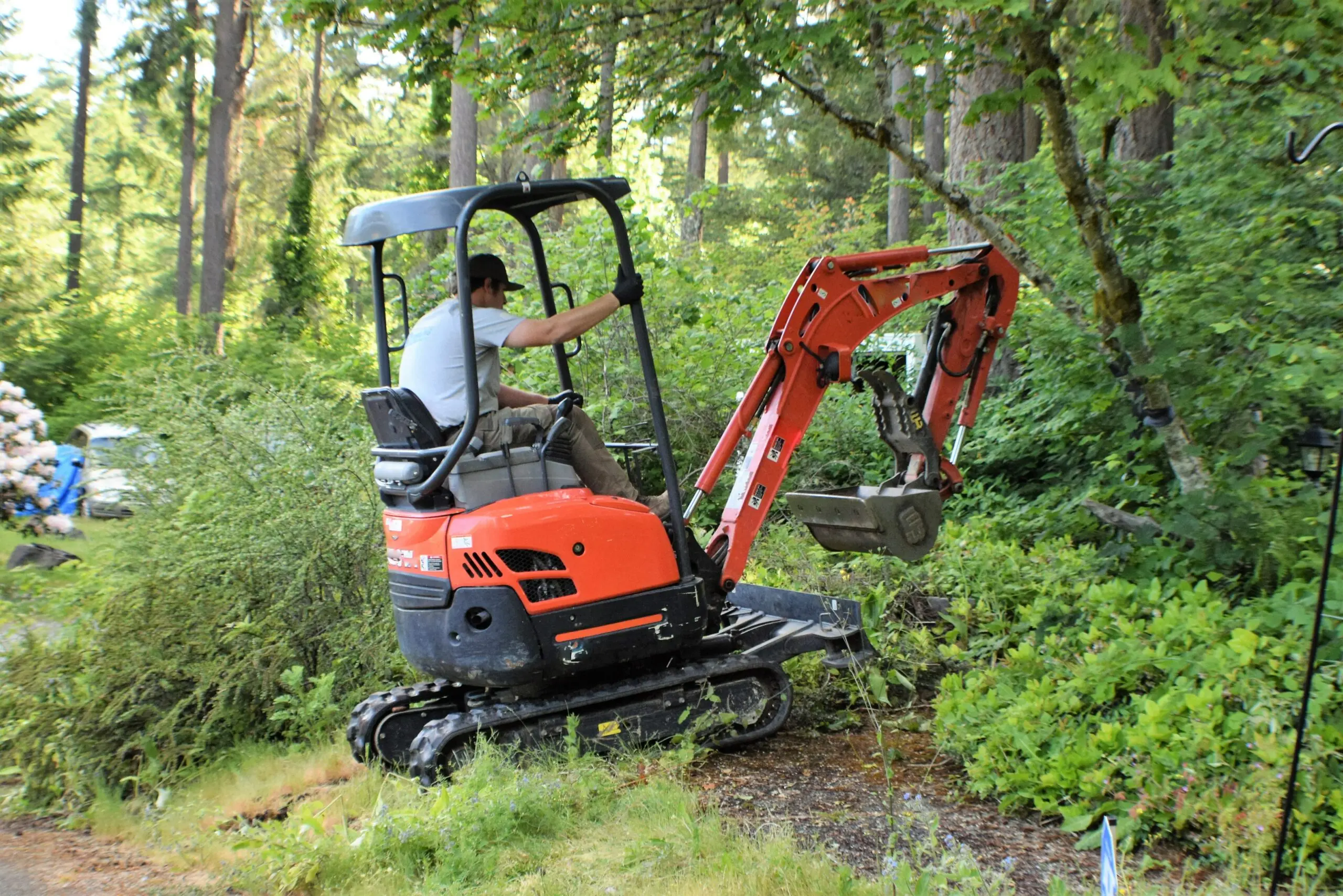
6. Interview the Contractor’s References
After you’ve compared the costs, you’ve probably got a good idea of which contractor you’d like to hire. But before you enter into the contract phase, it’s time for one last piece of due diligence: calling the contractor’s references.
Realistically, the contractor is going to give you the names of his most satisfied clients as references. It’s fair to assume that they’re going to say nice things, especially if you ask broad, yes-or-no questions.
Asking pointed, open-ended questions can help ensure you get honest answers. Consider asking questions like these:
- What made you want to choose this contractor for your project?
- Can you describe a typical workday or workweek during your project?
- How did the employees or subcontractors act with or without the supervisor on site?
- Can you describe the contractor’s communication style?
- If you had any disputes or hiccups in the project, how did the contractor handle them?
- How involved were you throughout the process?
- Overall, how would you describe your experience with this contractor?
In an effort to respect the homeowner’s time, prioritize the top three or four questions that you’d like to ask first, then extend the conversation only if they seem willing.
References aren’t compensated for their opinions, so it’s important to remember that any information is given out of goodwill.
7. Build a Strong and Enforceable Contract
Congratulations! All your research has paid off –– you can now be confident in your selection of a contractor. Time to move forward with a contract!
Not all contracts are created equal, though. To maximize your contract’s enforceability and avoid disputes down the road, look for the following items. Compare them against the initial bid to make sure everything is agreeable.
- Date of execution.
- Company name, contact info, and license number.
- Your name and contact info.
- Description of the project.
- Anticipated start and finish dates.
- Detailed pricing by task.
- Permits that the contractor will pull.
- Payment schedule.
- Termination clause.
- Change order clause.
- Warranty (if applicable).
- Release of any liens upon full payment.
Most of these items should be familiar from the estimate, but a few things could use additional explanation.
Payment Schedule
Standard payment schedules can vary depending on the type of job. For smaller projects that can be completed in a few days, full payment is usually due upon completion.
Custom projects, such as cabinetry, may require a downpayment between 30% and 50%. More is required because the contractor is taking a bigger risk on custom work; they’ll be stuck with cabinets that they can’t use elsewhere if you change your mind.
Larger projects usually have a scheduled series of payments or draws that should be outlined in your contract.
A deposit to begin the work (usually no more than 10%) is included as well. For example, the payment schedule for a $100,000 addition may look like this:
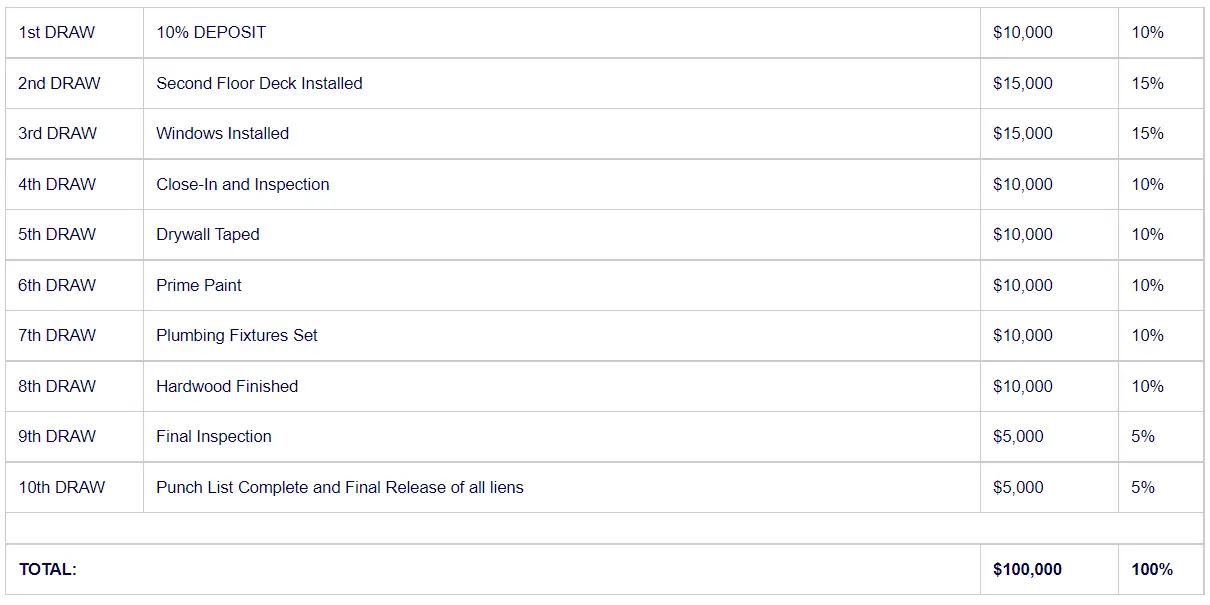
Source: HomeAdvisor
No matter what type of project is being contracted, always make sure to pay by check or credit card directly to the company. This creates automatic documentation of your payment, which protects you as the consumer.
Also, for larger projects, be sure to hold onto that final payment (or at least the labor portion of the final payment) until all inspections are complete, all liens are released, and all your agreed-upon desires are satisfied.
Change Orders
On larger jobs, there’s always a possibility that changes will be needed or wanted as the job continues. The tile you wanted is on backorder –– will you wait for it (causing a time change) or will you choose another tile (causing a supply price change)?
Your original contract should have a clause that outlines how change orders are handled. Any major changes should be documented and added to the contract via a signed addendum, just to keep everyone on the same page.
Release of Liens
Contractors have the right to file for a lien on your property (sometimes called a mechanic’s lien) if the total bill is not paid.
Upon final payment, a contractor should give you a release that states they have been paid in full, indicating that they do not have cause for putting a lien on the house.
The release should also state that all suppliers and subcontractors have been paid. This detail is important because if it’s later found that the contractor did not pay for all supplies and labor on your project, you may be left legally responsible.
Make sure that a Release of Lien and Affidavit are discussed at the contract stage, and follow up as needed after completion.
8. Leave an Online Review
After your project is complete, make sure to take a moment to leave an online review for the contractor. After all, client reviews were a part of your decision to hire the contractor in the first place. Sharing your experience will help other homeowners during their own research phase.
Helpful reviews may contain thoughts about timeliness, professionalism, communication, and expertise. You may also want to mention your opinion on the overall quality, pricing, and outcome of the project.
Finding a good contractor is an important part of every home renovation, repair, or remodeling project. With some intentional research, planning, and communication, you can be confident in your decision to hire an expert contractor for your home project.
Similarly, finding a good investment property requires research and expertise. New Western is here to help you confidently invest in properties throughout the nation. Fill out a contact form and we’ll help you get started in the process.
